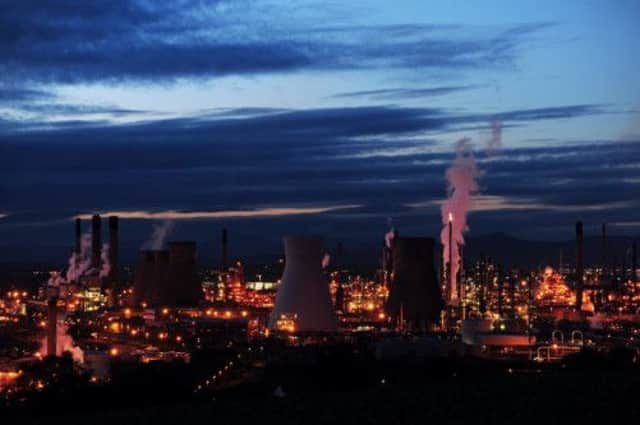Grangemouth: Future viability rests on new infrastructure


The refinery, one of only seven left in the UK, processes 200,000 barrels of crude oil a day while the petrochemical plant produces two million tonnes of products each year for use in food packaging, car parts and other plastics.
A shortage of ethane from the North Sea, which is used as a raw material at the petrochemical site, means the plant’s two ethylene “crackers” are running below capacity and losing £10 million a month. But not only have supplies of the gas declined by 60 per cent in the past decade, Ineos’s current agreements with North Sea operators expire in 2017, so with no additional raw materials becoming available locally any time soon, the plant has become a liability.
Advertisement
Hide AdAdvertisement
Hide AdIneos says securing a future for the plant depends on a £350m investment in new infrastructure facilities that would allow Grangemouth to exploit cheap shale gas imported from the US. The company has already begun work on similar facilities at its site in Rafnes, Norway.
Despite the present brouhaha over the dash for fracking gas, looking closer to home for raw materials will not help to keep the fires burning at Grangemouth as any potential commercial production of shale gas in the UK is likely to be up to a decade away.
The Grangemouth site is estimated to account for eight per cent of Scotland’s manufacturing industry, and an indefinite shutdown of both the refinery and petrochemical plant could cost the Scottish economy up to two per cent of its gross domestic product.
The latest official figures show refined oil and chemicals were one of the leaders in growing Scottish exports this year. The sector, in which Grangemouth has been dominant, was worth £3.7 billion last year.